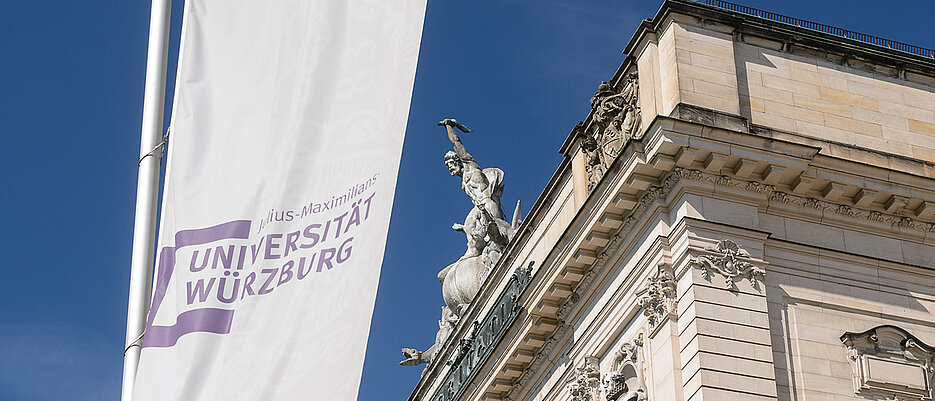Biofabrication: New Research Center
05/10/2019The University of Würzburg plans to build a "Center of Polymers for Life". Rating the new project as excellent, the German Council of Science and Humanities has recommended its implementation.

Julius-Maximilians-Universität Würzburg (JMU) in Bavaria, Germany, aims to add another new building to its research infrastructure: the "Center of Polymers for Life" (CPL). So what is the new project about? The "polymers for life" are designed for innovative applications in medicine. Polymers are complex molecules that are already widely used in clinical practice: as bone cement, artery stents or artificial heart valves.
However, the currently approved polymers are not suitable for all applications. For example, their processability or degradation behaviour in the body needs to be improved. Moreover, the new field of research known as biofabrication has promised further innovations for using polymers for some years. Biofabrication refers to automated 3D printing processes where polymers and living cells are processed simultaneously as "bioinks" to create structures similar to body tissue right after being produced.
"This enables researchers to create functional tissue models using automated and standardised processes," says JMU Professor Jürgen Groll, who is the CPL's spokesman and heads the JMU Chair of Functional Materials in Medicine and Dentistry. Such models are highly valuable as alternatives to animal testing, in pharmaceuticals and cancer research and for regenerative therapies such as custom-made implants to rebuild bones.
Bavarian Minister of Science congratulates
Ten JMU research teams are planning to make further progress in this area. The German Council of Science and Humanities has now recommended the "Center of Polymers for Life" (CPL) as excellent and worthy of being funded.
Bernd Sibler, the Bavarian Minister of Science, congratulates the University of Würzburg: "Würzburg is the ideal site for the science of the future. Today's council vote is a clear sign that JMU is a leading research center in the field of biofabrication. The new research building will provide scientists across disciplines excellent conditions for networked research activities."
Evaluation criteria of the council
The council evaluates the submitted applications for the funding of research buildings with respect to their relevance, originality and innovation potential as well as national and international appeal. The council only commends applications for funding that are convincing in all aspects. Based on these recommendations, the Joint Science Conference of the Federal Government and the Länder Governments (GWK) makes the final decision about the new construction. If approved, the Bavarian government and the federal government will each fund half the costs of the building.
EUR 23 million building near Center of Chemistry
The new building is set to be located on the JMU Hubland campus on a 1,570 square metre plot next to the Center of Chemistry and is estimated to cost around EUR 23 million plus another four million euros for large appliances and the initial equipment. Construction is expected to begin in 2020 and to be completed in 2024.
JMU a pioneer of biofabrication
"The University of Würzburg has enormous expertise and international visibility in the fields of polymer chemistry and biofabrication," says university president Alfred Forchel, who is excited about the council's vote.
Already in 2014, JMU established a professorship for biofabrication. In the following year, the international double degree master's programme "Biofabrication for Future Manufacturing" was set up conjointly with the University Medical Center of Queensland University of Technology and the University of Wollongong, both in Australia.
Moreover, JMU makes the public announcements on behalf of the first biofabrication research association in Germany: The Collaborative Research Center SFB/TRR 225 "From the fundamentals of biofabrication towards functional tissue models" began its work in 2018 with Professor Jürgen Groll as its spokesman.
Another success for JMU
The recent recommendation of the council marks another success in the University of Würzburg's efforts to build new research infrastructure. Since 2016, the council has recommended the Institute for Topological Insulators (ITI, physics) and the Institute for Sustainable Chemistry and Catalysis with Boron (ICB, chemistry) for implementation. Both buildings are presently under construction.
What is more, the German Council of Science and Humanities has endorsed the Center of Philology and Digital Humanities which is set to be constructed on the northern JMU campus and is expected to be opened in 2022.
About the council
The German Council of Science and Humanities advises the German government and the federal governments on developing universities, science and research in terms of content and structure.






